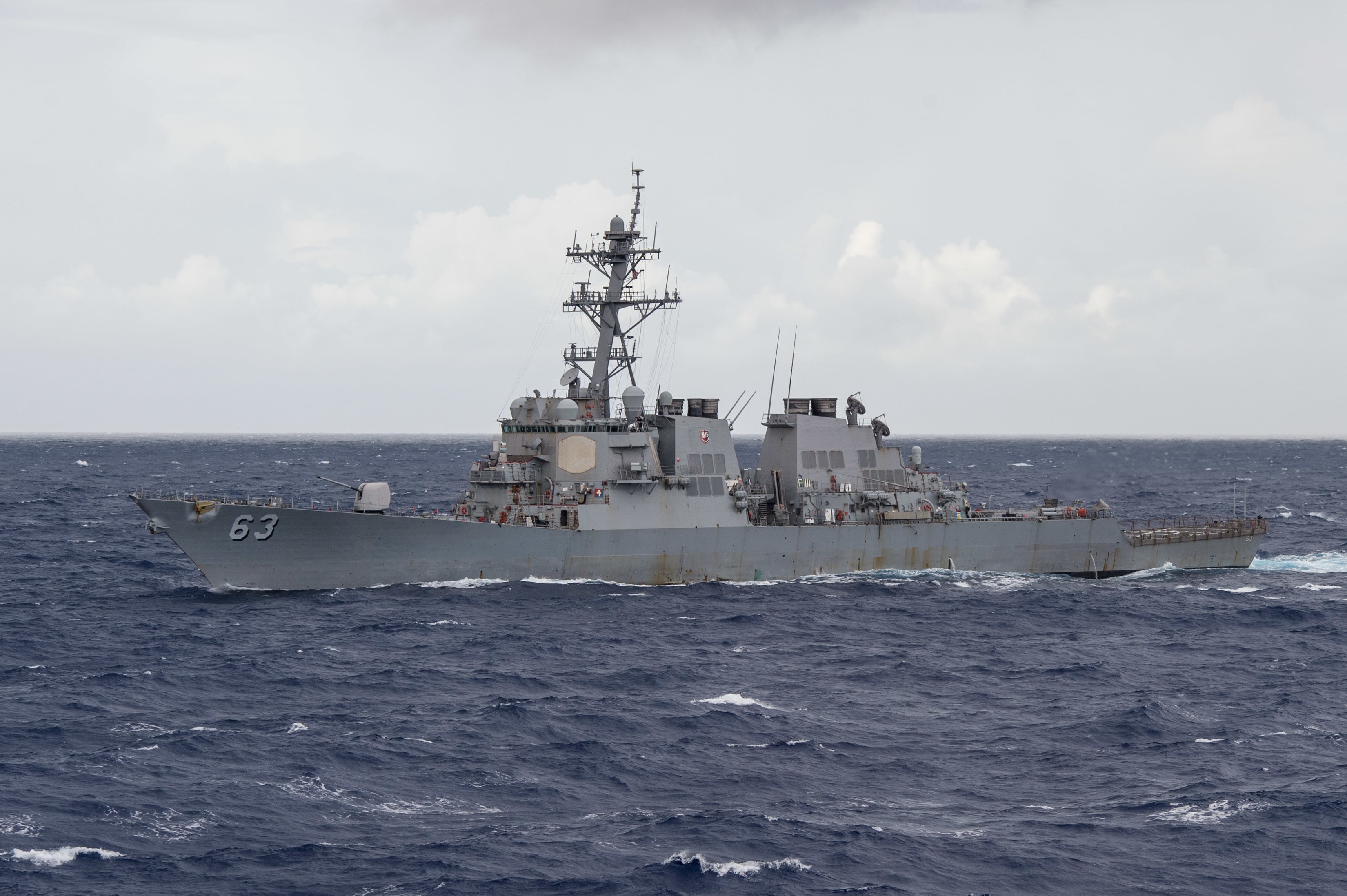WASHINGTON — The U.S. and Chinese navies are cooperating in the South China Sea, at least in search and rescue.
The Japan-based U.S. destroyer Stethem discovered its sailor was missing and presumed overboard midmorning local time on Aug. 1, triggering a search-and-rescue effort.
Two Chinese People's Liberation Army Navy frigates shadowing Stethem, which is being assisted by two Japan Maritime Self-Defense Force ships, are now also aiding the recovery effort, according to three Navy officials who spoke on background.
RELATED

The PLAN ships and associated aircraft are assisting the search, which greatly expands the area the Stethem can cover to try and find its sailor.
One U.S. Navy official, who spoke on condition of anonymity, pointed to the Chinese cooperation as a win for protocols set up between all the nations in the region, including China, that were championed by the former U.S. Chief of Naval Operations Adm. Jon Greenert.
"I would say that this is a good example of what benefits come from increased positive interaction with the Chinese," the official said. "The use of [the Code for Unplanned Encounters at Sea], existing operational channels for communication, participation in [Rim of the Pacific Exercise] — instances such as this, search-and-rescue efforts, are where those positive interactions and familiarity pay dividends."
The current CNO, Adm. John Richardson, has maintained contact with his counterpart in the PLAN, though he has at times publicly drawn a harder line that his predecessor, openly discussing the need for the U.S. Navy to counter China’s growing naval capabilities.
The Sino-U.S. relationship has been strained — at times close to breaking over the past three years over what the U.S. views as China’s increasingly assertive actions in the South China Sea, and the increasingly hard line taken by the U.S. in regard to China’s expansive claims to maritime and economic rights there.
The Chinese assistance will be welcomed by the U.S., but the cooperation will likely not change the overall trajectory of simmering issues between the two countries, said Bonnie Glaser, who runs the China Power Project at the Center for Strategic and International Studies.
“All navies on the seas share common concerns and the safety of sailors is high up on that list,” Glaser said “But I would not exaggerate the broader significance. I don’t think this spills over into an easier way to manage our operations in the South China Sea: They don’t want us doing surveillance inside their exclusive economic zone; the U.S opposes their militarizing of the islands in the South China Sea.
“Every navy in the world will set aside issues when it comes to humanitarian assistance and search and rescue, it’s a good reminder that the Chinese are like everyone else.”
David B. Larter was the naval warfare reporter for Defense News.




